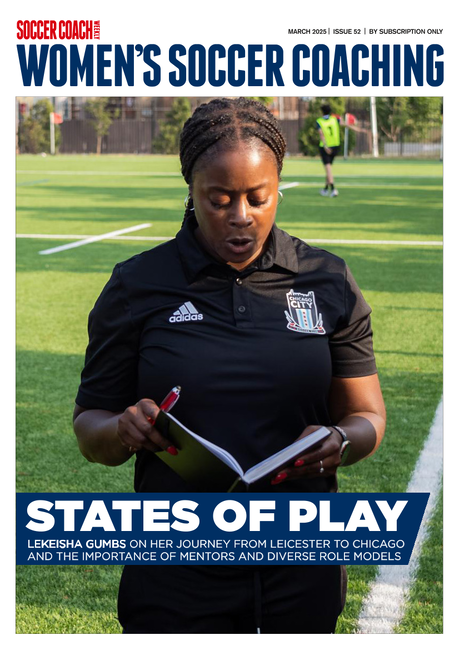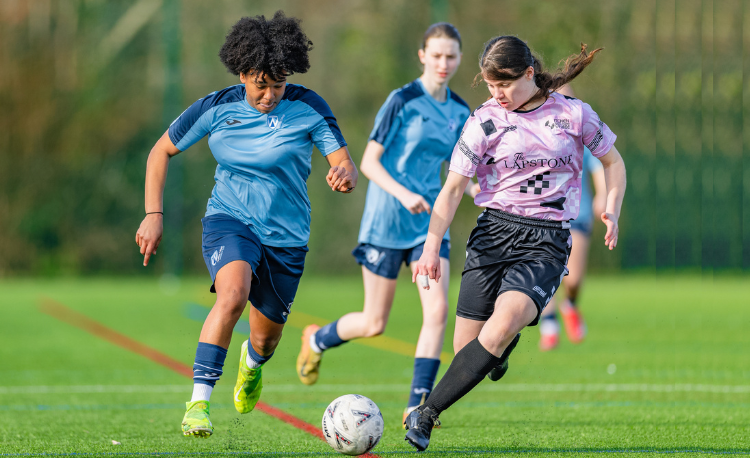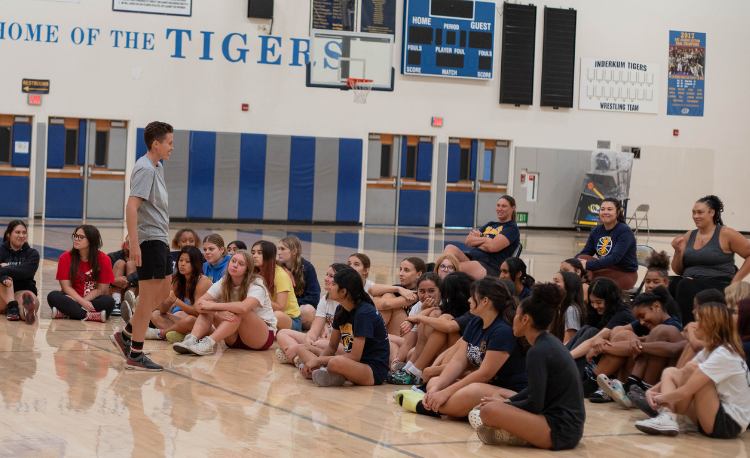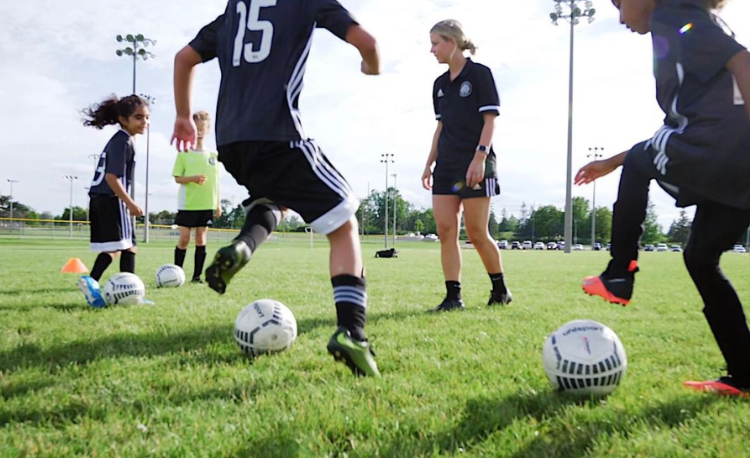You are viewing
2 of your 3 free articles
Top sleep tips to boost players' performances
You snooze, you lose? Not necessarily — tactical naps, sleep banking and lie-ins should all be encouraged by coaches, says sleep scientist Dr Amy Bender
Dr Amy Bender, whose work with elite athletes included helping Canada’s women’s soccer team optimize sleep and adjust to late game times for the Rio Olympics, shares her sleep expertise and advice with Women’s Soccer Coaching subscribers...
Tiredness can impair performance - just like drinking
"Sleep helps improve immunity and reduce injury risk. Plus, the better sleep you’re getting, the less likely you are to perceive your workout as being difficult. People who are well rested are able to go further with less perceived effort. Also, decision-making and reaction time are improved with better sleep.
"One study sleep-deprived a group and then had those same people drinking alcohol. It found that 20 hours or so of sleep deprivation was the equivalent to being legally drunk, in terms of reaction time being impacted. When people are sleep deprived, they make riskier decisions - the interesting part is they don’t even realize."
Keep a regular check on players’ sleep
"Coaches can’t tuck the athletes in every night but there are tools available. At centerforsleep.com, players can take the athletes’ sleep-screening questionnaire, which I helped develop, and learn whether they have a sleep problem or not. The results can even be emailed to coaches as well.
"Coaches can be more involved by checking in with their athletes on how they’re sleeping through the season and potentially bringing in an expert to provide sleep education, so everyone understands how important it is for performance."
Bad night’s sleep? No harm in a nap
"A teenager would need to get 8-10 hours a night of sleep; an adult would be 7-9. We think athletes probably need more than that, so going above that minimum is crucial.
"But a lot of times athletes don’t get enough sleep. If they can supplement that with a nap, that’ll help improve performance.
"Another strategy would be to encourage banking of sleep. So if you’re approaching a really important competition, say a week or two before, encourage athletes to go to bed early and sleep in, which is going to help their performance in the long run.
"My advice to coaches would be to encourage it in the weeks leading up, rather than reminding them to get good sleep the night before, as that could put pressure on."
If you train first thing, consider training later in the day - it may just get the best out of younger players
"Adolescents typically have a later chronotype, so are more likely to be night owls and their melatonin - their sleepiness hormone - is released later.
"So as a coach, if you have the option to delay training times to late morning or early afternoon, that is another strategy to encourage more sleep opportunity.
"I know of some strength and conditioning sessions happening at 6:30am. Let’s say players have to get up at 6am for it, then they would have to be asleep by 10pm to get a full eight hours, or more likely 9.30pm, because it takes you time to fall asleep.
"So, realistically, they’d have to be in bed by 9pm to get the amount of sleep they genuinely need and that’s not how biology works, particularly as an adolescent. Their melatonin is being released almost two hours later than a normal adult.
"Teens are not just lazy for wanting to sleep in – in reality, their biology is preventing them from going to bed early.
And if you train late evenings, ensure players are winding down afterwards
"Players should have strategies to unwind - doing relaxing techniques, getting into dim light, taking a warm bath or shower, or writing a to-do list are all really important to incorporate into a pre-sleep routine.
"We have a pre sleep routine for our babies and toddlers, but it’s just as important in adults as well."
Encourage players to put phones away
"Quality of sleep is important. So players shouldn’t be looking at their phone right before bed, getting amped up because of something on social media.
"Taking time to unwind also helps improve sleep quality. Take about an hour to unwind, do some stretching, do some relaxing activities, maybe read a paper book."
STRUGGLING TO SLEEP? TRY DR AMY’S RECOMMENDATIONS
"Firstly, there’s the 4-7-8 breathing technique - breathing in for four seconds, holding your breath for seven, and breathing out for eight. Then there’s the cognitive shuffle, where you think of a word such as ’bedtime’ and imagine all the objects you can starting with B – ball, baby, bag – and move on to the next letter.
Try progressive muscle relaxation where you constrict muscles and then relax them, starting at the feet and moving up the body. If you’re still wide awake, get out of bed and only return when you’re sleepy – because you don’t want to associate your bed with being awake. So if you are struggling to fall asleep, get up out of bed, do a relaxing activity in low light, and only return back to bed when you’re sleepy again."
Related Files
Newsletter Sign Up
Newsletter Sign Up
Discover the simple way to become a more effective, more successful soccer coach
In a recent survey 89% of subscribers said Women's Soccer Coaching makes them more confident, 91% said Women's Soccer Coaching makes them a more effective coach and 93% said Women's Soccer Coaching makes them more inspired.
*includes 3 coaching manuals
Get Inspired
All the latest techniques and approaches
Women's Soccer Coaching offers proven and easy to use soccer drills, coaching sessions, practice plans, small-sided games, warm-ups, training tips and advice.
We've been at the cutting edge of soccer coaching since we launched Soccer Coach Weekly in 2007, creating resources for the grassroots youth coach, following best practice from around the world and insights from the professional game.






